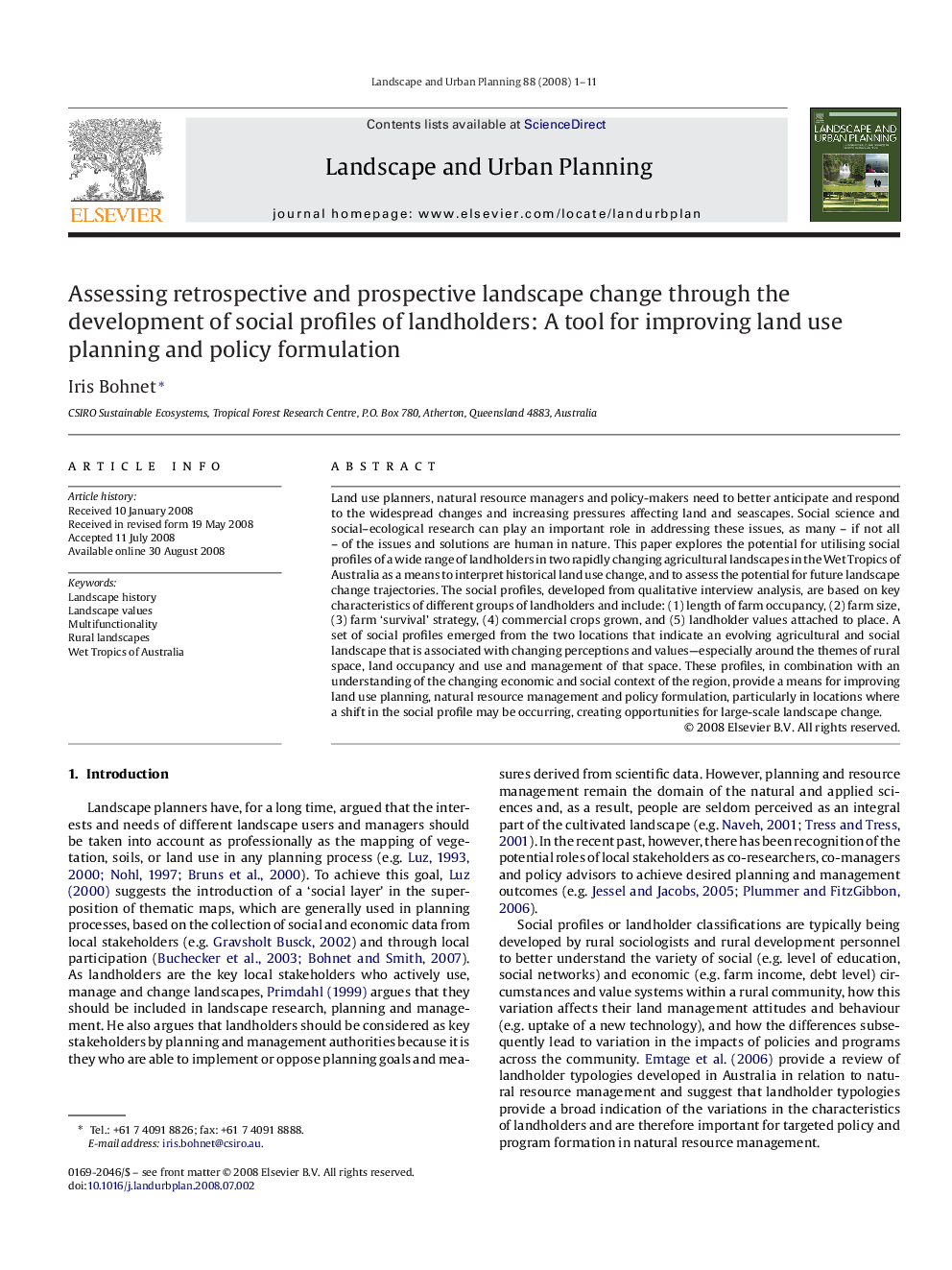| Article ID | Journal | Published Year | Pages | File Type |
|---|---|---|---|---|
| 1050010 | Landscape and Urban Planning | 2008 | 11 Pages |
Land use planners, natural resource managers and policy-makers need to better anticipate and respond to the widespread changes and increasing pressures affecting land and seascapes. Social science and social–ecological research can play an important role in addressing these issues, as many – if not all – of the issues and solutions are human in nature. This paper explores the potential for utilising social profiles of a wide range of landholders in two rapidly changing agricultural landscapes in the Wet Tropics of Australia as a means to interpret historical land use change, and to assess the potential for future landscape change trajectories. The social profiles, developed from qualitative interview analysis, are based on key characteristics of different groups of landholders and include: (1) length of farm occupancy, (2) farm size, (3) farm ‘survival’ strategy, (4) commercial crops grown, and (5) landholder values attached to place. A set of social profiles emerged from the two locations that indicate an evolving agricultural and social landscape that is associated with changing perceptions and values—especially around the themes of rural space, land occupancy and use and management of that space. These profiles, in combination with an understanding of the changing economic and social context of the region, provide a means for improving land use planning, natural resource management and policy formulation, particularly in locations where a shift in the social profile may be occurring, creating opportunities for large-scale landscape change.
